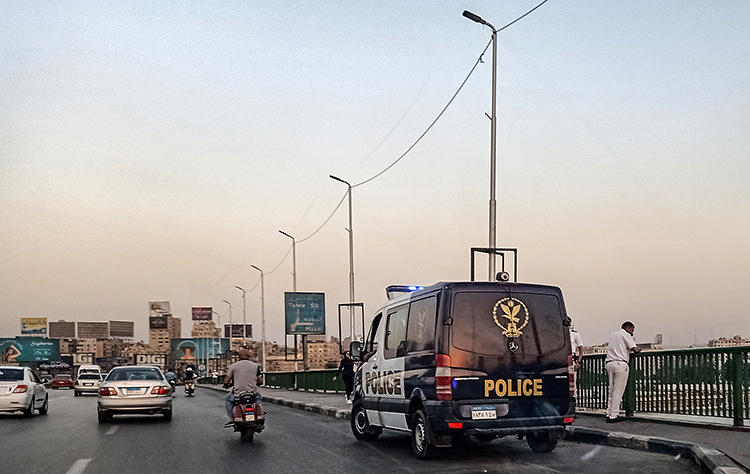Washington, D.C., September 23, 2019 — Egyptian authorities must release any journalists arrested covering protests and stop restricting access to news and social media websites, the Committee to Protect Journalists said today.
The protests, which started on September 19 in several cities throughout Egypt, decried corruption in the nation’s army and, for the first time in years, included calls on President Abdel Fattah el-Sisi to resign, according to news reports.
On September 20, police in Cairo arrested Mohamed Ibrahim, a blogger known as Mohamed Oxygen, who live-streamed the protests and shared information about them online, according to Ibrahim’s posts on social media.
Also on September 20, police arrested Omar Hisham, a photographer for the Masrawy news website, at Giza City near Cairo, according to a report by the Arab Network for Human Rights Information, a local press freedom group.
On September 22, police in Suez arrested Sayed Abd Ellah, a freelance photographer, who streamed the protests in that city on his Facebook page, according to news reports.
Police have not disclosed the locations where Ibrahim, Hisham, or Abd Ellah are being held, according to those reports.
Beginning on September 21, internet users throughout Egypt reported difficulty accessing Facebook Messenger as well as the websites of news outlets including the BBC, Al-Jazeera, the U.S.-funded Al-Hurra news website, and the independent Egyptian news website Mada Masr, which had previously been censored but was briefly unblocked on September 20, according to reports by NetBlocks, an organization that tracks internet shutdowns, and news reports.
Makram Mohamed Ahmed, the head of Egypt’s Supreme Council for Media Regulation told government-owned outlet Ahram Online that the BBC and other news websites may have been blocked because of their “inaccurate” coverage of the protests.
“The free flow of information to the Egyptian public is vital for all citizens, including local and international journalists,” said CPJ Middle East and North Africa Program Coordinator Sherif Mansour. “Egyptian authorities must release all journalists arrested for their protest coverage, unblock news websites and communication apps, and allow journalists to report freely and safely.”
Police arrested Ibrahim during a regular probation check-in, he posted on Facebook. Hisham was arrested while he was covering a celebration by local soccer fans, which coincided with the protests, according to local press freedom advocate Khaled al-Balshi, who spoke with CPJ via messaging app.
Police arrested Abd Ellah on September 22 at his house in Suez, while he was broadcasting on Facebook live footage of protests from his balcony, according to a video that his wife, Omnia Fawzy, uploaded to YouTube and news reports. The journalist’s wife said in her video that police insulted her husband because of his posts on social media, kicked her and their children, and searched their house.
On September 21, Egypt’s State Information Service issued a statement to foreign journalists in the country, saying it had “carefully monitored” their output and warning them against spreading false information. The message was later sent by email to Cairo-based foreign journalists, according to posts on Twitter by journalists who received it.
CPJ’s emails to Egypt’s Supreme Council for Media Regulation, State Information Service, and Prosecutor General’s Office about the arrests and the internet blocks did not receive any responses.
[Editor’s note: This article has been changed in its fourth paragraph to match the spelling of Omar Hisham’s name with previous CPJ reporting. The fifth and 11th paragraphs have been changed to include where Abd Ellah was streaming the protests and to correct details of his arrest, respectively.]
